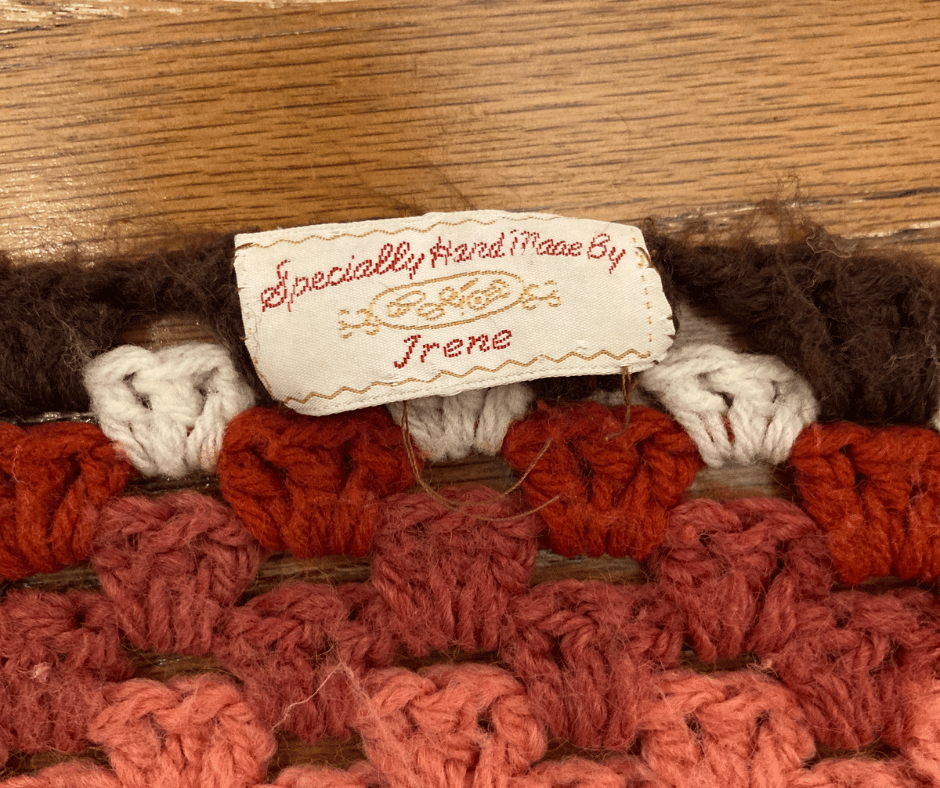“You know, Dad’s grandmother made that,” my mom said as my daughter was getting ready for bed and holding an old, knitted blanket.
“Yep,” my mom continued, “There’s a tag on there that says, ‘Made by Irene’.”
I knew I had used the blanket as a kid. And now seeing my daughter use it gave it even more meaning. But now it is definitely something to be passed down as an heirloom. And it got me thinking about what other things might be passed down through and to bloodlines. What things are worth keeping? What things are not worth keeping?

The story goes that while Teddy Roosevelt was delivering a campaign speech, a heckler interrupted him yelling, “I’m a Democrat!”
Roosevelt, ever fearless and quick-witted, decided he would make the man regret this rude decision: “May I ask the gentleman why he is a democrat?”
The man replied, “My grandfather was a Democrat, my father was a Democrat and I am a Democrat.”
“My friend,” Roosevelt cooly responded, moving in for the kill, “suppose your grandfather had been a ******* and your father was a *******. What would you then be?”
Alas, Roosevelt took an L when the quicker-witted heckler promptly replied: “A Republican!”
Politics aside (seriously, please), this humorously speaks to the need for each of us to be aware and conscious of the things we received from those who raised us. Those who held large influence over us during our upbringing. Those who taught us in the privacy of our home. They told us how the world works. But we also learned by observing. Actions do speak louder than words. These lessons many times are more far-reaching and longer lasting than any heirloom treasure we may inherit.
I don’t want to whistle past heirlooms too quickly, though. I have furniture, jewelry, blankets, plants and tools that are multi-generational. They are special just for that reason alone: a family member long before me once held this, found comfort in this. Some I never even met, yet no doubt when they thought of their future generations, their heart was filled with hope and love. That is priceless. That is worth holding onto.
But we receive more than physical items.
A friend of my families recently remarked how her mom wanted to give her the family’s heirloom Bible. It is giant and old. It’s been in the family for several generations. Only one person is going to hold it at a time, but I guarantee many people in her family will exhibit the same physical features, personality quirks and proclivities as previous generations. See my point?
Some things we cannot change: fair skin, dark skin, red hair, curly hair, etc. Some of our expressions and mannerisms are just coded into us and we can’t help it. My son, for example, acts just like my father-in-law (his grandpa). It’s wild. He doesn’t even have to try.
But what about other things or, more specifically, personality, behavior or character traits like the ones Roosevelt was attempting to criticize? Again, not going political.
When you go to a doctor, they always give you a questionnaire and want to know all about your family history. They understand we tend to inherit things like depression, heart disease and even alcoholism. But even things like anger and divorce, hatred and promiscuity create patterns in generations. And good things like faith, hospitality, and generosity can be passed along as well.
Some things are inherited in our DNA. Others are impressed upon as during our formative years, and other are conclusions we come to based upon experience or observance.
How conscious are we of those things? How precious and sacred are they to us? How concrete and unchangeable are they? Will you and I be just because they were? Can we be different?
I know there are those who say that obesity is genetic, but gender is not. Then there are the arguments over generational poverty or wealth. I’m not fighting those battles here. My goal is for you and me to see the many areas of life we need to engage in personally. Personally, as in being introspective and curious about your own self and behaviors. Stop forfeiting by thinking, “That’s just the way I am,” or, “That’s just who we are.”
Some heirlooms are valuable, but some would add more value to our lives if they were not part of our lives anymore. Less is more, right?
You can still love and honor those who produced you even though you let some of their things go. Such introspection and action may even prove to be an incredible blessing to not just yourself but to your own progeny as well.
If we can change how we think we can change our lives.

